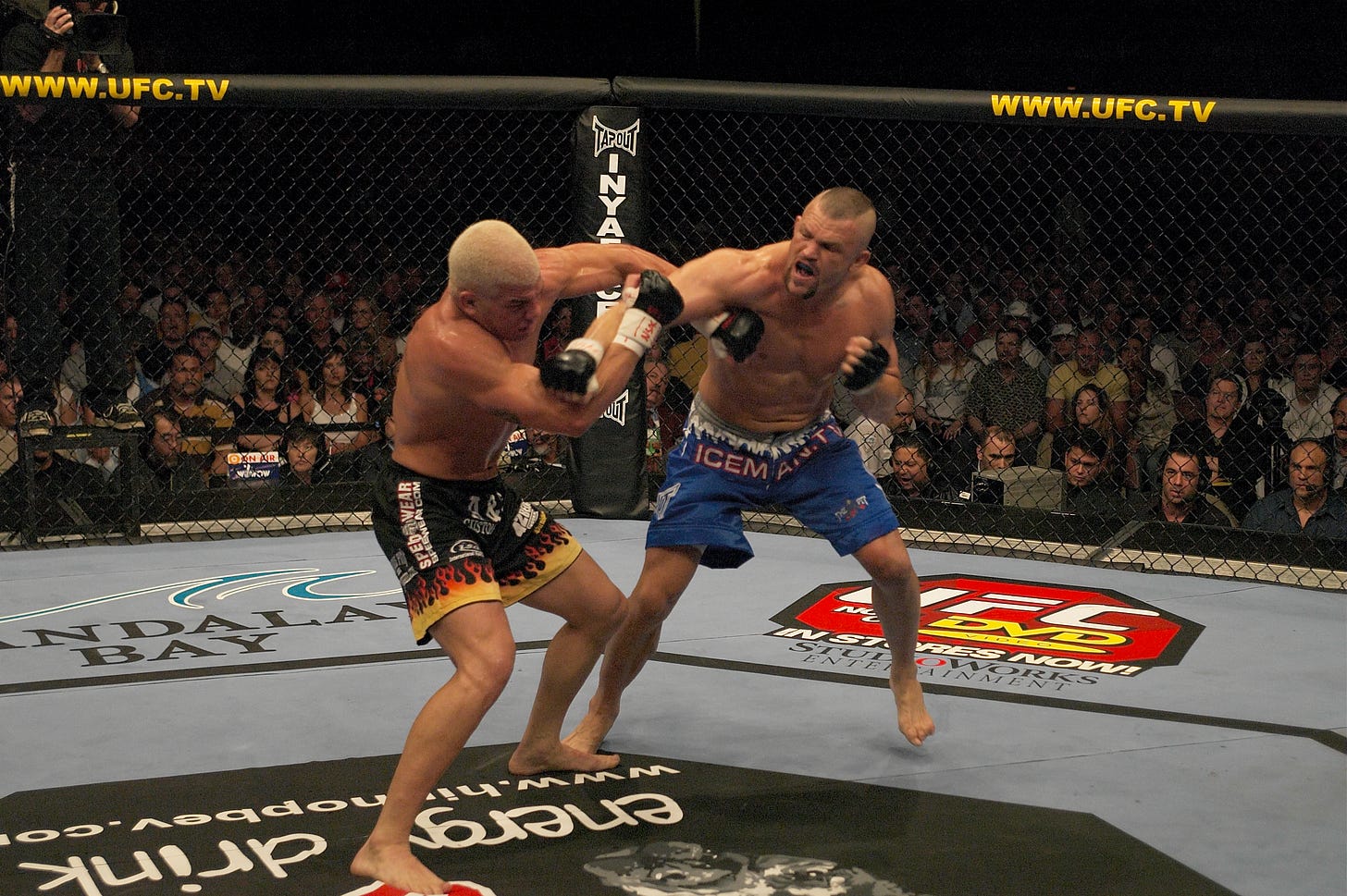“Pay me enough money, I’ll fight anybody.”
Chuck Liddell in a nutshell, ladies and gentlemen. It’s how he lived his life for the best part of 20 years before retiring in 2018.
Now, though, he seems to be enjoying the quiet life. But that doesn’t stop him from getting itchy knuckles every now and then.
“I’m always going to be a fighter,” he says. “That’s just a part of me. I don’t think I’ll ever lose that. I don’t think anyone does when they retire.
“There was a rumour going around a few years ago that I was going to fight Mike Tyson. Ariel Helwani started it. I said I’d fight anyone for 10 million dollars.
“Obviously it didn’t come about. But I do still get it [the itch] occasionally. I’m not afraid to get in the ring with anyone. I’ve always had that sort of mentality. I don’t think that will ever leave me.”
These days, Liddell often attends UFC events in person as a guest of honour. After all, it’s the least he deserves. Without him the company might not even still exist.
Back in 2005, the UFC was arguably on its last legs.
Ratings were down. Pay-per-views were at an all-time low. Something needed to change.
With the backing of Lorenzo and Frank Fertitta, UFC president Dana White came up with an idea: a reality TV show - and to everyone’s surprise, it worked.
Liddell, 53, was one of the coaches on The Ultimate Fighter, with his great rival Randy Couture in the opposite corner. The pair fought three times during their careers, with Liddell losing the first before winning the other two by knockout.
“I have a lot of great memories from that show,” he says. “I remember one time the guy who wrapped the hands showed up late. I said ‘well can I wrap his hands instead?’ They wouldn’t let me wrap his hands. I thought that’s a little silly but okay.
“So the guy eventually shows up, he wraps Kenny Florian’s hands, then we started warming up. Then one of the producers comes in, he says ‘okay guys we need to get him in the cage’, I said ‘what do you mean? We’ve just started warming up.’ He started screaming at me, saying ‘we need to get him in the cage right f***ing now’. So I said ‘Look here, you hired me to be this guy’s coach, he’s not going out there until he’s ready.’
“Then the executive producer comes down, she comes running in and starts screaming at me. I said ‘Who the f**k do you think you’re talking to? Protecting these guys is my No 1 priority. If you want him out there right now, you ask Dana and Lorenzo who they want to fire, me or you?’ After that she soon calmed down.”
So you want to be a fighter?
First the pain, then the agony. Tom Aspinall admits he had never experienced anything quite like it before.
But it isn’t just the memories that have stuck with him. Liddell insists that not only did it help him develop as a coach, but it also helped him improve as a fighter.
“Another thing that TUF did is that it taught me how to be a better coach,” he says. “I was showing something to Forrest Griffin that I did all the time to get guys off of me. I was always trying to learn from people. I think one of the biggest advantages I had in the beginning was I made sure I was good at everything. The more balanced a fighter you are the better you are going to be in the long run.
“There’s three elements of fighting. There’s wrestling, striking, and jiu-jitsu. Most guys came in with one at that point and had to learn two. I came in with two and had to learn one. It’s really easy to fall into a trap if I don’t know what you’re doing to me.
“Nowadays it’s even more important especially with the way the sport has evolved. Fighters these days have to be good at everything. It’s no good only being good at one thing. You have to be good at everything. That’s what I always try to tell fighters.”







